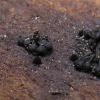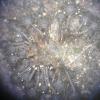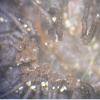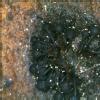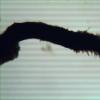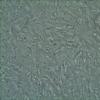
13-02-2026 18:05
Margot en Geert VullingsOn February 9, 2026, we found these small hairy di

02-02-2026 21:46
Margot en Geert VullingsOn a barkless poplar branch, we found hairy discs

13-02-2026 03:30
Hello! I found these immersed perithecia on a stic

15-02-2026 04:32
One more specimen that is giving me some descent a

14-02-2026 22:45
Hy!I would ask for some help determing this specie

09-02-2026 14:46
Anna KlosGoedemiddag, Op donderdag 5 februari vonden we ti

14-02-2026 19:09
Valencia Lopez Francisco JavierHola colegasEstoi interesado en este articulo, Agn

14-02-2026 10:58
 Bernard CLESSE
Bernard CLESSE
Bonjour à toutes et tous,Pourriez-vous m'aider à

12-02-2026 21:34
patrice CallardBonjour, la face inférieure des feuilles ce certa

Hello,
another pyrenomycete with distinct characters, but as I'm not familiar with pyrenomycetes I'm not too certain about the determination.
Macroscopically this is very similar to the drawing in DENNIS for Calosphaeria pulchella. However there are some differences:
- ecologically the species should be immersed in the substrate and only the long necks are to see. In my collection the whole fruitbodies were superfically "lying" on bark. It might be, that one layer of the bark split of not long before I found the perithecia, but nevertheless they were not immersed in wood.
- the necks of the perithecia are covered by a tomentum of orange hairs! See the fotos. I have not found that feature reported or drawn in the literature.
- the spores are slightly bigger than in DENNIS: 6-7,5 (8) x 2-2,2 (2,5) µm, but that may be due to my measurements being from living spores.
What is your opinion on this collection?
thank you and best regards,
Andreas
looks like Barbatosphaeria barbirostris. The ascospores should be 1-septate and it looks like they are in your photo.
Here's some literature:
http://www.mycologia.org/content/99/5/723.full.pdf
http://www.researchgate.net/publication/273261066_Molecular_systematics_of_Barbatosphaeria_(Sordariomycetes)_multigene_phylogeny_and_secondary_ITS_structure
Best wishes,
Gernot

Hallo Gernot,
mal wieder tausend Dank für die Hilfe - den hätte ich nie gefunden ....
Die Sporen waren in der Tat bisweilen septiert, aber ich hatte nicht den Eindruck dass sie dies bereits im Ascus gewesen wären.
beste Grüße,
Andreas
